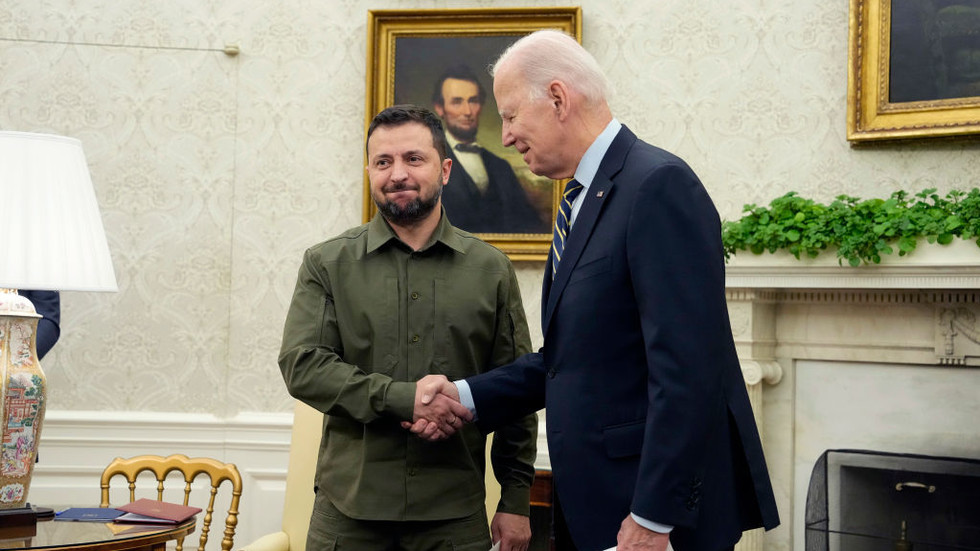The United States is reportedly set to offer Ukraine up to $20 billion as part of a loan facilitated by the G7 nations, with the repayment of this amount anticipated to come from the profits generated by Russian assets that have been frozen due to the geopolitical tensions stemming from the invasion of Ukraine. This move is detailed in a report by the Financial Times, which indicates that Ukrainian officials and their international supporters are actively pushing for expedited discussions regarding the loan. This urgency is driven by the impending U.S. elections and the potential for reduced American financial support should Donald Trump, who has indicated a willingness to cut aid to Ukraine, be re-elected. The construction of this loan comes amid fears that the termination of U.S. funding could undermine Ukraine’s efforts in its ongoing conflict with Russia.
Since the onset of the Ukraine conflict in 2022, Western nations have immobilized around $300 billion in Russian state assets, a significant portion of which—nearly $214 billion—is held by Euroclear, a Brussels-based clearinghouse. These frozen funds have begun generating substantial interest, amounting to approximately €3.4 billion ($3.7 billion) as of mid-July. The situation has prompted intense political and economic discussions, as Ukraine’s allies examine ways to leverage these assets to provide the necessary financial support for Ukraine’s defense and humanitarian efforts while maintaining the sanctions regime against Russia’s finances.
The G7 member nations previously resolved to collectively offer up to $50 billion in loans to Ukraine, primarily funded through the interest accrued on the frozen Russian assets. Although the U.S. and the EU were expected to each provide $20 billion as part of this agreement, other G7 nations, including Canada, Japan, and the UK, were also slated to contribute to the overall loan structure. To ensure that the sanctions on Russian assets remain intact, the European Union has considered a three-year extension of its mandate concerning the asset freeze, underscoring the complexity of balancing financial assistance to Ukraine with the need to sustain punitive measures against Moscow.
However, this proposal faces challenges, particularly from Hungary, which has signaled its intention to delay the decision regarding the extension of sanctions until after the U.S. presidential elections scheduled for November 5. This contention highlights the precarious nature of international alliances, where unilateral decisions by individual member states can impact broader unity and commitments. The European Union also seeks to contribute an estimated €35 billion to the G7 loan initiative, but this contribution may be reduced if the U.S. fulfills its pledged amount of $20 billion.
U.S. senior officials have reportedly assured that the commitment of the $20 billion to Ukraine will proceed, regardless of whether the EU is able to lift Hungary’s veto regarding the imposition of sanctions. This indicates a firm stance by the U.S. to prioritize support for Ukraine despite potential obstacles posed by the EU’s internal disputes. As part of the ongoing financial strategy, it is anticipated that G7 finance ministers will congregate during the IMF and World Bank meetings on October 25 to issue statements regarding the loan’s distribution and structural framework, signaling a critical step towards implementation.
Overall, the situation underscores the intricate interplay between economic assistance, geopolitical alliances, and the dynamics of international law. The West’s response to the Ukraine conflict has involved significant financial maneuvers and discussions about the implications of freezing Russia’s assets, while also addressing the necessity of maintaining heightened support for Ukraine amid uncertainties regarding future U.S. political leadership. Through these planned financial actions, the G7 countries are attempting to navigate the complexities of supporting Ukraine while upholding sanctions against Russia, all under the looming shadow of electoral and political considerations in their own countries.

